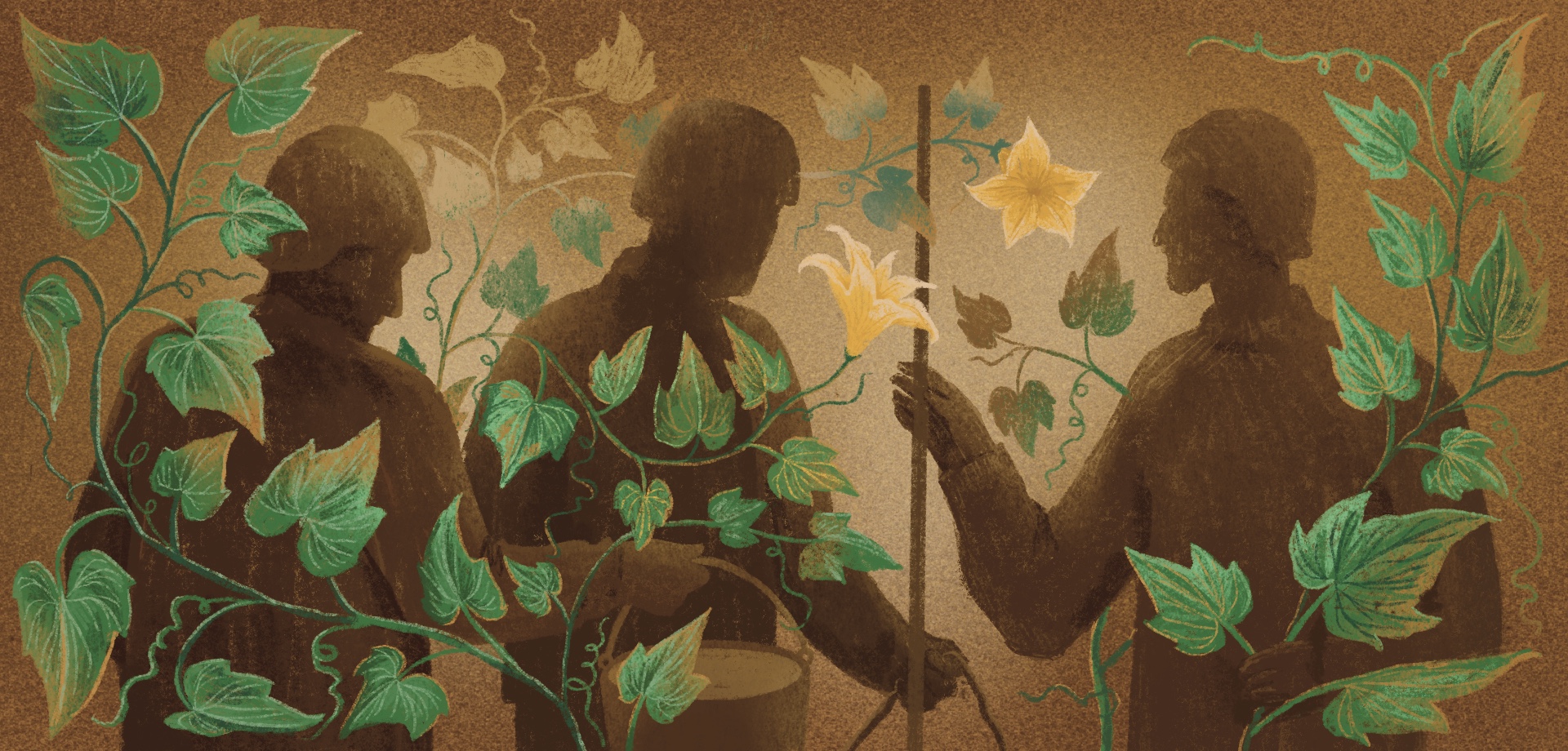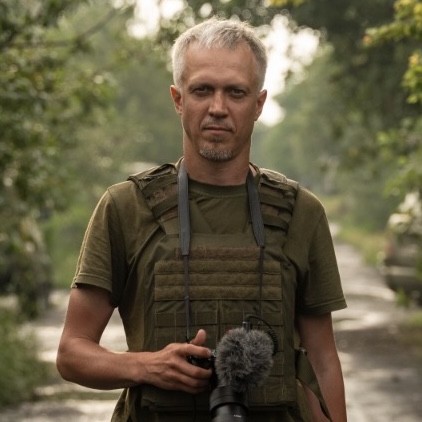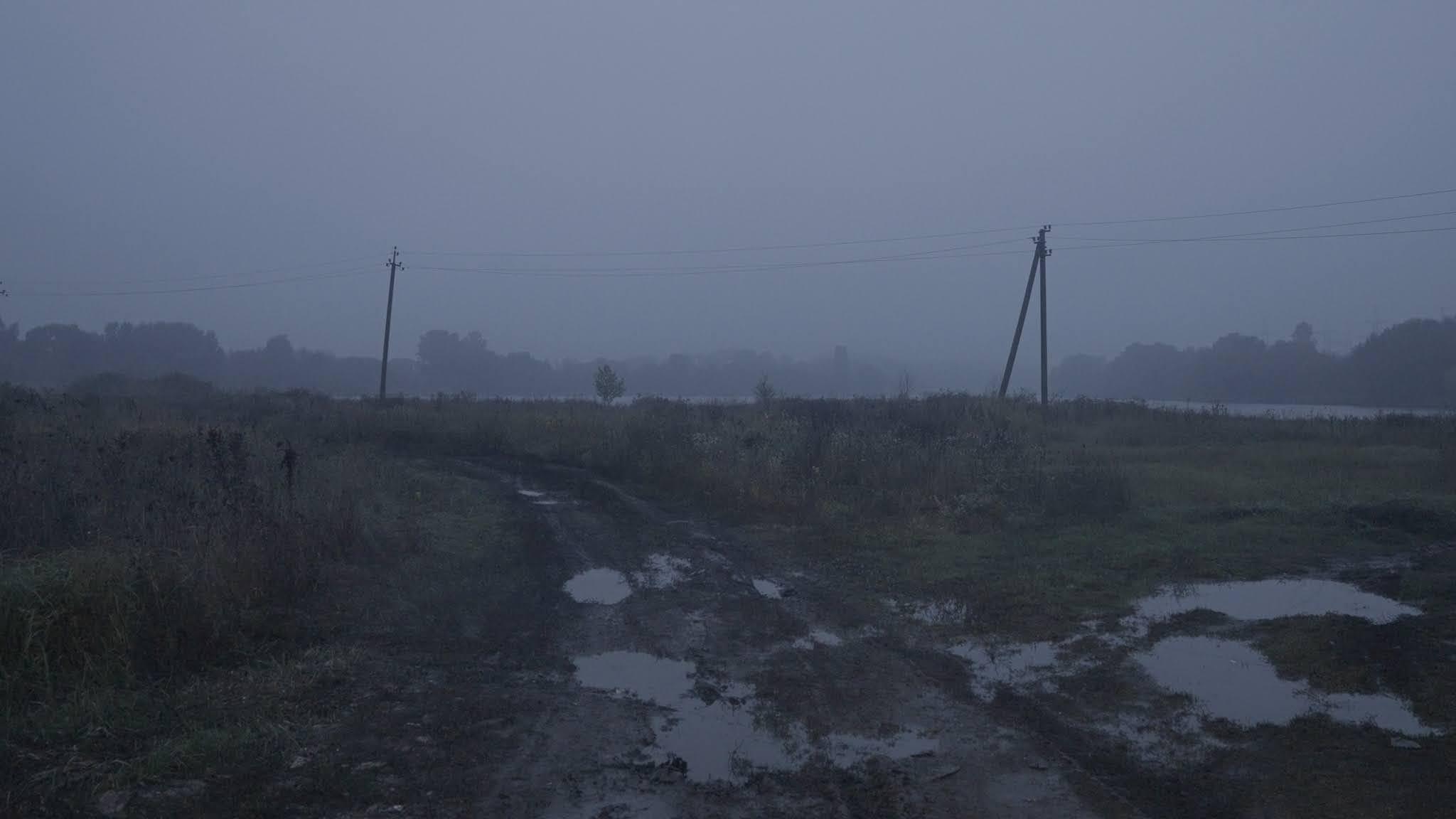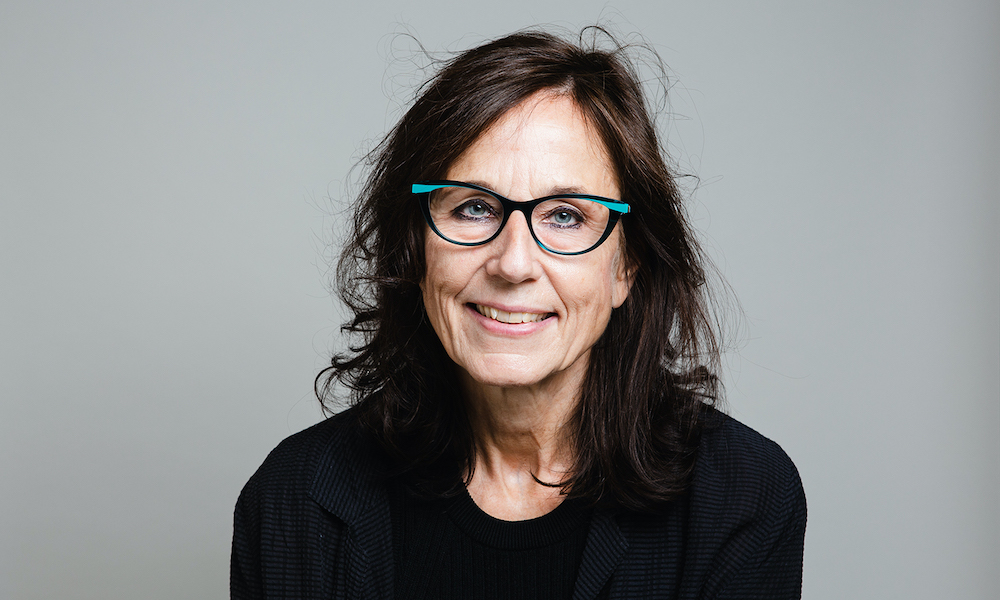
Near the frontline, a sense of closeness coming virtually out of nowhere
What kind of relationships grow among those who serve in the armed forces during a war? In this personal essay, the theater director Pavlo Yurov, who serves in Ukraine’s National Guard, describes encounters near the frontline, and shared moments that forge a “second family”. War reshapes intimacy, revealing the human instinct for closeness.
“We’re like a family.” I’ve heard this phrase regularly while shooting features on troops, visiting their firing positions, and talking with combat crews. For a long time, I took it as a metaphor for the closeness of their relationships; a comment on how well the soldiers had studied each other’s behavior over their years of serving side by side.
But two years after the start of the full-scale war, I was at a 120-mm mortar position, with Kostya, Dmytro, and their brothers in arms. Afterwards, I went into the house they were staying in, a few dozen kilometers from the front line. I saw, then, the way they lived together in that one house – settling in, cooking food, doing laundry, cleaning up, going to the bathhouse, sheltering from incoming, repairing their cars, preparing their equipment and weaponry, and even growing cucumbers together. It’s the same when they’re at their positions: they get set up, eat, hide, and work on Russian targets – together.
That’s when it all clicked: the phrase “we’re like a family” gets precisely at the nature of relations between brothers in arms. It’s more than friendship: it’s a form of a second family. They’re always together at their positions, and together “at home.” Always side by side. Their separate lives exist only in phone conversations with their “first” – civilian – families, and only sometimes on days off.
In what we call “the big war” – the full-fledged Russian invasion that began on February 24, 2022 – friendships and other close relationships have become flexible and dynamic: they can form and end in a moment. Until the end of February 2022, these relationships were founded on common interests, time spent together; shared fun, shared work. In wartime, brotherhood and sisterhood can reach their fullest extent – the shared (or parallel) experience of mortal danger.
*
I met Yevhen one morning. He’d been piloting various drones for three years, and his vision had suffered. He’d started wearing glasses – round ones with a vintage look. These, along with his grey skinny jeans, black hoodie, raincoat, and worn baseball cap, gave him the look of a real Podil hipster. We try to meet for coffee at least twice a year – every three months if we can. When Yevhen is at the front, I try to exchange messages with him once every week or two.
When I was on rotation in Lyman and asked Yevhen for the password to travel during curfew, he started sending it to me every day. And kept sending it to me for a few months after my rotation. I’d like his messages, and sometimes respond with memes or with my own videos and photos of our troops. Finally I wrote to him that I wasn’t on my rotation anymore, and Yevhen replied that he knew. This was our game, aimed at letting the other know you’re alive and well.
*
Mitya got in touch with me at the start of the invasion and asked if I could record a video diary on my phone and send it to him. He was working for a German TV station, and had come up with a series of features based on the video diaries of people living through the war in their various ways in various parts of Ukraine. I agreed happily. We’d met just a few months before at a New Year celebration in the Carpathians. Before then I’d heard about Mitya from friends and even spent a day at his apartment in Berlin, but had never actually seen him in person.
Making these videos opened up a unique channel of communication, one where I felt a sense of trust. The recordings became a space for reflection, for working through the stress and the horror of the months that followed. I talked about my work with journalists, about my time in Kyiv and the east, the attacks, the panic, the pain. During the calls with Mitya I felt heard, accepted, empathized with. Mitya spoke to me sincerely and openly, shared his frustrations with the German left and right, bemoaned the slow procedures at German state television, and celebrated volunteer initiatives to support Ukrainian refugees. We became close. Our cooperation developed into a virtual friendship.
*
The space between me and Anton feels like a transparent wall, a bit like a water bed or a jellyfish. I think of him from time to time, but hardly write or call him. Before the invasion I went to Anton’s wedding. We did three exhibits together, and I really valued my conversations with him after my captivity in 2014. In the autumn of 2022 Anton went to an art residency in eastern Europe, and didn’t come back to Ukraine — he explained that there were power outages here, and that he needed to work uninterrupted on foreign orders from IT companies.
I’m not serving in a military role, although I regularly visit troops, and don’t feel I have a moral right to blame or judge him. At the same time, I can’t continue to have easy, unburdened conversations with him. We’ve called each other a few times on birthdays and similar occasions. During these conversations I’ve half wanted to confront him, but we’ve ended up talking about his small child, his art projects, and things like that.
*
Clemens moved from New York to Kyiv in 2014, working as a modern art curator. Now he’s married to a Ukrainian artist, has an apartment in one of the central districts, speaks Ukrainian, and raises money for his friends in the army. I jokingly call him a naturalized Ukrainian, although our country doesn’t have the same legal procedure that the US does. Before the invasion we’d meet for beer and talk over various ideas for creative partnership. I always liked our conversations, because he wasn’t one for monologues – he’d really listen to what I said and react; he took a genuine interest.
At the end of 2022, when I’d gathered a videoarchive of reflections from places near the front where I’d traveled with journalists, we tried to team up on a concept video. I was then dreaming of something closer to a documentary, while Clemens wanted to do media art. Over hours-long meetings where we went through the material, I told him about how I’d filmed the features, and what had stayed behind the scenes – about coming under fire in Irpin, Rubizhne, and Lysychansk, about the pictures of the bodies of Ukrainian civilians killed by the Russians in Bucha, and the dead Russian soldiers in the Lyman area during the territory’s liberation. I felt genuine fear: I remember my whole body trembling at my memories and stories about those experiences.
*
Yevhen – the one with those stylish new glasses – used to be an actor. He was in films and TV shows before the invasion. I invited him to my exhibit. I like his mostly calm, but occasionally sparky disposition, as well as his firm principles, unusual for an actor. He left Crimea after the annexation, having worked in the Theater of the Black Sea Fleet for a few years, and began a new life in Kyiv. When the Russians crossed the border in late February 2022, he joined the territorial defense forces, and then the armed forces.
After two years in the army, Yevhen was offered a movie role by a well-known Ukrainian director. Yevhen replied that he couldn’t act now. He couldn’t afford to be vulnerable and sensitive; he had to control his emotions and feelings. He warned me a few times about the situation in the Serebryansk forest and on the Kupyansk front, areas I ended up going to after him.
Yevhen also jokes about death a lot. I don’t like hearing these jokes, despite his hearty laughter, but I don’t say anything. I’ve often listened to his complaints about his commanders, and his sincere expressions of anguish for the fallen. Now Yevhen has been transferred to what is basically an elite division, and his burden of responsibility has eased, but the chronic fatigue and mortal danger show through in his facial expressions.
*
At the end of March, Kostya and Dmytro, whom I mentioned at the beginning of this piece, went missing in action. Young guys, both around thirty. Kostya was a cyclist, and was dreaming of coaching teenagers after the war. Dmytro filmed videos and fundraised for his unit through Tiktok. They have wives and kids. I’ve taken journalists to their positions a few times, driven out to them in Lyman, loaned them my charging station, recorded various videos for the brigade. I felt free and easy with them. Those guys were exhausted after a year and some at the front, but were serving honorably. We’d agreed that we’d meet again.
According to their brothers in arms, Kostyantyn and Dmytro had gone to set up a decoy position for a mortar. They’d reported that they were done, but disappeared on the way back – two to three kilometers from the battle line. Searches brought no result. No tracks, no bodies. I still get a dissociative feeling now. There’s no evidence that they should be presumed dead, but also no sign they’re alive. They’re somewhere out there — in the ether of war.
*
I’m not well-acquainted with Vitya, and don’t know much about him, other than that he worked on a team that organized one of Ukraine’s biggest film festivals. And I think I once got into film showings thanks to him. He was mobilized in the winter, and in our Telegram group chat, sympathetic girls were asking whether there were any open positions for Vitya, to keep him out of the infantry. A common occurrence in artistic circles, given how regularly you hear of the mobilization of one cultural figure or another. I wrote Vitya then to ask if I could be of assistance, but he didn’t respond.
In the summer I wrote again – and Vitya got back. It turned out that he was in a neighboring village in the Kharkiv region. When I pulled up to the hut on the village outskirts, there was a vivid orange sunset. Three men were walking shirtless around the yard; they’d been drinking and were arguing about something. Vitya came out with an awkward smile, seeming partly ashamed of his companions and partly amused by them. They were his comrades in service, and he was doing internal investigations. One of the men asked me a few times whether I wanted a drink, as if to say: “Never met a friend under these circumstances before!”
Instead we drank tea and beat off the mosquitoes, and Vitya shared tales of basic training and the story of how he’d ended up in investigations. We talked about the picturesque vistas of the Kharkiv region, how the smoke in the air was like on the Côte d’Azur, how that must have influenced Repin’s talent – and about the total lack of understanding of army work culture among civilians. It was my fifth month in the east, and our conversation gave me a chance to relax. I was talking to someone from my own context, someone with a similar worldview and set of values. Unlike the other soldiers and local people I’d been interacting with, I didn’t have to explain anything to him. I laughed sort of idiotically then, at the sense of closeness that had come virtually out of nowhere.
But after my meeting with Vitya, I felt an acute loneliness.
At that time I didn’t trust most of the people I was talking to in my service, in the combat zone in the east. We lacked a common context, our sincerity felt pointless, our openness, empty. It would seem obvious that the army is, to put it mildly, the last place you should seek spiritual connection. Still, many volunteers and conscripts develop a brotherhood that fills their day-to-day lives and combat tasks with emotional meaning.
Friendship for me means a chance to express myself and to hear others out. It’s about solidarity and mutual aid, joint effort in a common fight, acceptance and a chance to be yourself, taking each other’s mistakes in stride, and caring about each other. To be a friend is to keep someone in mind and be there for them, regardless of the circumstances.
The chance to meet with my military friends is something I cherish like a romantic date. Learning the details of each other’s lives, news and “psychological wellness profile” is a pretext for time spent together – when we take stock of each other’s presence, of where we are in space and time, of the bearings on our moral compasses, and of our unity at a decisive moment for the country.
Translated from Ukrainian by Katharine Quinn-Judge
Illustration: Maryana Mikitiuk


